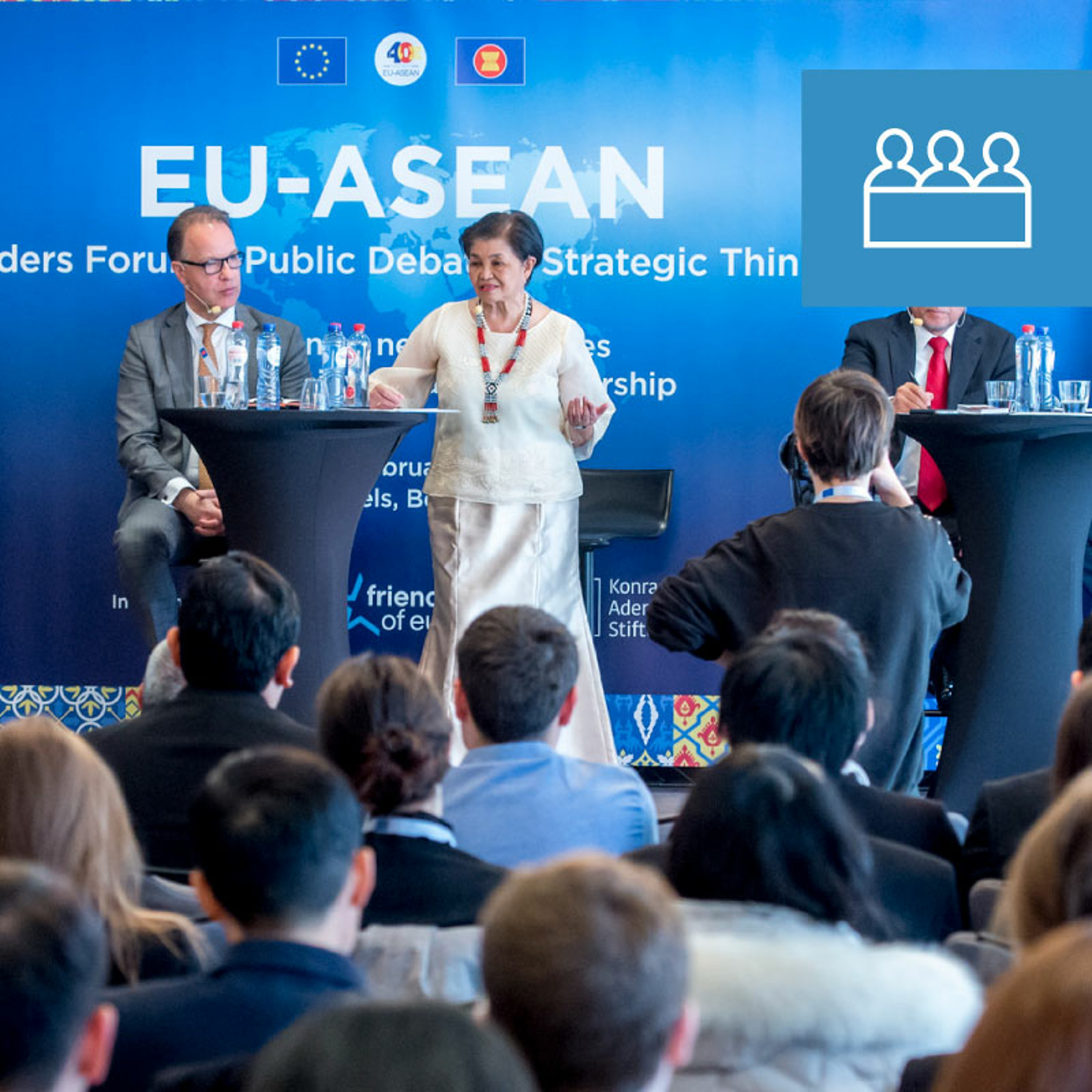Session II: Will EU-ASEAN Relations Still Matter in Forty Years?

ASEAN-EU relations have grown and evolved steadily over the years, with both sides inter-acting on a range of economic, political and social issues. Meeting in Manila last August, ASEAN and EU ministers crafted an extensive and multi-faceted plan of action for a further upgrade of cooperation with a focus on bilateral ties, including security issues and connectivity, as well as on the wider global agenda including climate change, counter-terrorism and sustainable development. Ministers and the European Parliament have come out in favour of a resumption of negotiation on an EU-ASEAN free trade agreement. Contacts between ministers, policymakers, business leaders and civil society representatives are increasing. It hasn\u2019t always been plain-sailing, however. Differences over human rights and the application of EU standards in sectors such as palm oil and fisheries as well as the EU\u2019s long-standing quest to become a permanent member of the East Asia Summit continue to cast a shadow over relations.\n\n- ASEAN-EU relations have shown a remarkable degree of resilience so far but will the relationship survive \u2013 and if it does will it still matter in forty years? \n- In a volatile world, what can the ASEAN and EU do better and/or differently to reinforce relations in the coming years?\n- Given their differences on key issues like human rights, can the EU and ASEAN forge a true strategic partnership and negotiate a free trade agreement? \n- What can be done to promote greater people-to-people contacts \u2013 especially among young people \u2013 in ASEAN and Europe?